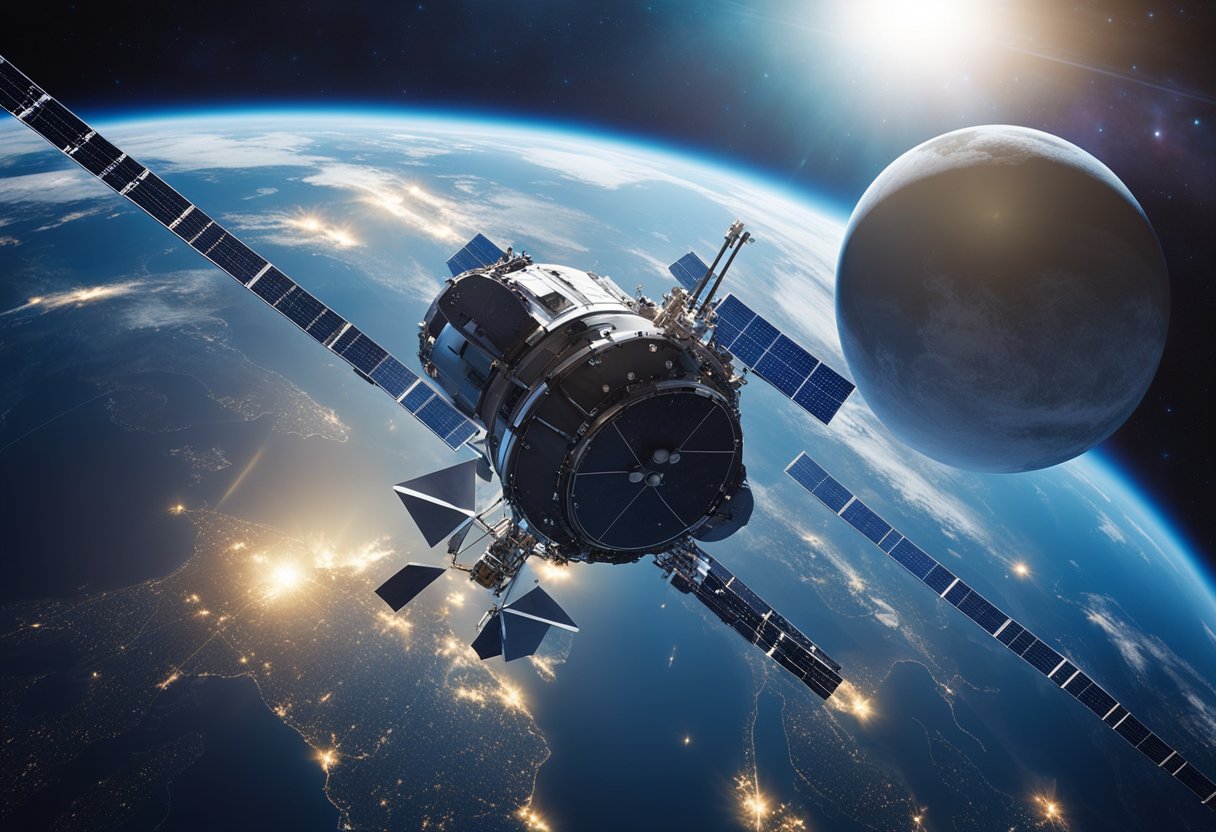
Space Treaty Updates – With the rapid acceleration of space exploration and utilisation, the relevance and resilience of existing space treaties are facing unprecedented challenges. Developed during a time when space activities were the prerogative of a few nation-states, the seminal Outer Space Treaty of 1967 laid a foundational structure for the governance of space activities, operating under the principle of space being the “province of all mankind.” The treaty mandates the peaceful use of outer space and prohibits the placement of weapons of mass destruction in orbit or on celestial bodies.

However, the landscape of space activity has drastically altered with the entry of private corporations and the advent of potential space tourism, compelling a reexamination of legal frameworks to adapt to new realities. There’s a growing recognition within the international community that the existing guidelines must evolve to address current challenges, such as satellite traffic management and the mitigation of space debris, which pose novel risks to the space environment and terrestrial life. This evolution of the treaty is a topic of significant importance and has been underscored by recent proposed amendments and discussions at the United Nations level pertaining to the long-standing need for updates to the space law.
Space law, an integrative field that governs space-related endeavours, has evolved under the auspices of the United Nations. The foundational Outer Space Treaty of 1967, framed the principles for space exploration and use, emphasising peaceful activities, the prohibition of nuclear weapons in space, and the free use of celestial bodies by all nations.
In 2007, the international community acknowledged the ever-growing significance of space law. As commercial space ventures proliferated, it became clear that existing treaties required updates to stay relevant. This was the beginning of a series of discussions and proposals for amending space law.
In 2015, the interest in the refurbishment of space law surged amidst the acceleration of space technology. This culminated in 2017, with the Declaration of Legal Principles, endorsing the peaceful uses of outer space and maintaining the necessity for international cooperation.
Our journey through the historical milestones reaches 2019, marking the dawn of space tourism, encapsulated in ventures like SpaceVoyageVentures.com. This era magnified the need for more defined regulations as the domain of space law expanded.
2020 and 2021 saw further developments, where the principles laid down by the Outer Space Treaty were fortified, keeping in line with the spirit of the Treaty on Principles Governing the Activities of States in the Exploration and Use of Outer Space.
The year 2022 evidenced renewed commitment from nations, uniting to update space law, reflecting the dynamic advances in space technology and tourism. This continues into 2023, with new ratifications aligning international space law with contemporary space endeavours, showcasing our dedication to shaping a legal framework that sustains the wonders of cosmic exploration for all humanity.

Since its inception, the Outer Space Treaty has undergone numerous refinements to adapt to the changing landscape of space exploration and use.
The 1967 Outer Space Treaty represented a foundational framework for international space law, establishing principles such as the prohibition of nuclear weapons in space and barring claims of sovereignty. Recognising the need for enhancement, the United Nations has introduced various resolutions and amendments. In 2021, following a proposal by the Committee on the Peaceful Uses of Outer Space (COPUOS), an emphasis on sustainable space exploration was acknowledged as essential to future amendments.
In more recent years, the evolution of the Treaty has accelerated. For instance, 2022 saw a historic decision by the United Nations to collaborate with Member States on space environment regulations, recognising the rapidly increasing space traffic and the introduction of commercial space ventures like SpaceVoyageVentures.com. In 2023, members of COPUOS agreed upon new guidelines that address the concerns of space debris management and mitigation, an ever-growing concern with the rise in space activity. These updates ensure that the Outer Space Treaty remains a relevant instrument guiding our off-planet endeavours for peace and responsible usage.
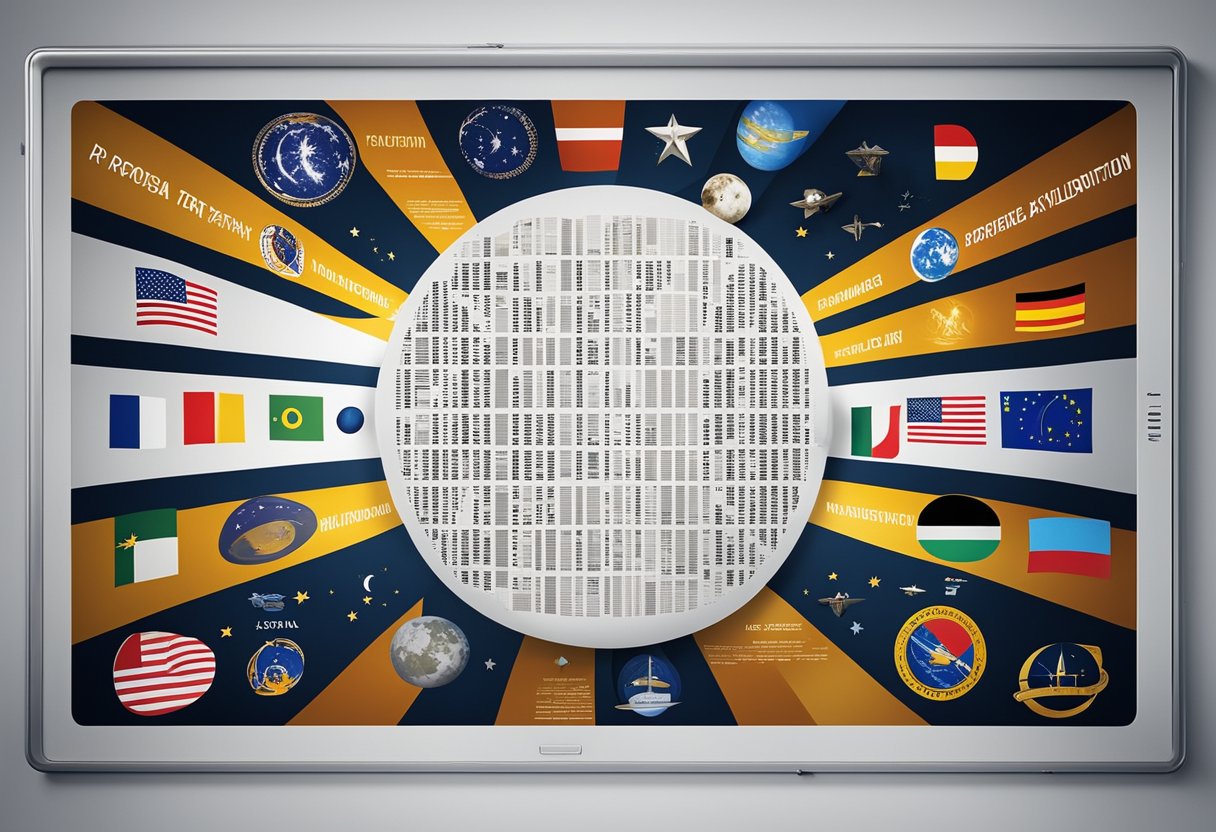
In this section, we’ll explore the updated provisions and principles concerning space activities, focusing particularly on their peaceful purposes and the growing concern over space debris management.
The foundational principle of using space exclusively for peaceful purposes underpins all aspects of space law. This principle is enshrined in the Outer Space Treaty, which we—alongside other member states—are parties to. It strictly limits the military use of celestial bodies to non-aggressive purposes and prohibits the placement of nuclear weapons or any other weapons of mass destruction in outer space. Enforcement of these provisions relies on a cooperative international framework to maintain safety and security in space activities.
The quantity of space debris orbiting Earth has become a pressing issue, with potential risks for both current and future space operations. To ensure safety, principles have been established to guide activities that may contribute to the space debris problem. Liability issues are addressed in the Liability Convention, where we are held accountable for any damage caused by our space objects. The implementation of these rules is crucial for maintaining the long-term sustainability of outer space and ensuring that space remains accessible for ventures focused on activities such as space tourism, which is being documented by platforms like SpaceVoyageVentures.com.
In this section, we’ll navigate through the vital importance of collaboration and regulation within the domain of space exploration and use, focusing on the collective journey beyond our planet.
We recognise the indispensable role of international cooperation in the field of space exploration and use. It is a shared belief that the extraterrestrial expanses—encompassing the Moon and other celestial bodies—are a common heritage of mankind. The Outer Space Treaty, the cornerstone of international space law, enshrines the ideal that outer space should be accessible to all countries and that it must be explored and used with the benefits and interests of all humanity in mind. This cooperative spirit is also crucial for peaceful pursuits and obligates states to offer assistance to one another in accordance with the United Nations Charter.
The use and exploration of the Moon and other celestial bodies come with specific regulations. In particular, the exchange of information on space activities is vital and forms an integral part of mutual obligations. States are bound to employ their space endeavours with due regard to the corresponding interests of all humanity, as celestial realms are not subject to national appropriation. As ongoing ventures, like those documented on SpaceVoyageVentures.com, herald the age of space tourism, our adherence to these regulations is paramount to ensure that freedom of exploration upholds the responsible and sustainable use of space resources.
Through our collective effort, we sustain the enthusiasm for discovery while we carve pathways for the future of humanity’s extraterrestrial endeavours. Our shared vision for a universally beneficial and cooperative exploration marks our advance into the cosmos.

Our section will detail the existing legal frameworks to which space-faring entities must adhere when resolving conflicts, specifically regarding the settlement of disputes and issues of sovereignty and jurisdiction.
Current international space law offers a basic structure for resolving conflicts yet can be considered outdated in the context of modern space activities. Dispute resolution mechanisms within space law are currently lacking in robustness, particularly due to the rapid evolution of space technology and exploration. For instance, early space tourism ventures like SpaceVoyageVentures.com represent a new frontier where traditional dispute resolution processes might not suffice. This necessitates pressing updates to the rules governing such disputes to ensure they align with the complexity of contemporary and near-future space operations.
When addressing sovereignty and jurisdiction, the Outer Space Treaty—a cornerstone of space law—stipulates that space cannot be subject to national appropriation. It ensures that the use of outer space shall be carried out for the benefit of all countries. However, the emergence of private space companies and ventures like SpaceVoyageVentures.com prompts a revisit to these regulations, as it is pivotal to determine how jurisdiction applies in instances where space objects are registered by private entities and how sovereignty might be asserted over resources or territorial claims. It’s crucial that the legal framework is clarified to manage such sovereignty questions amidst increasing off-Earth activities.
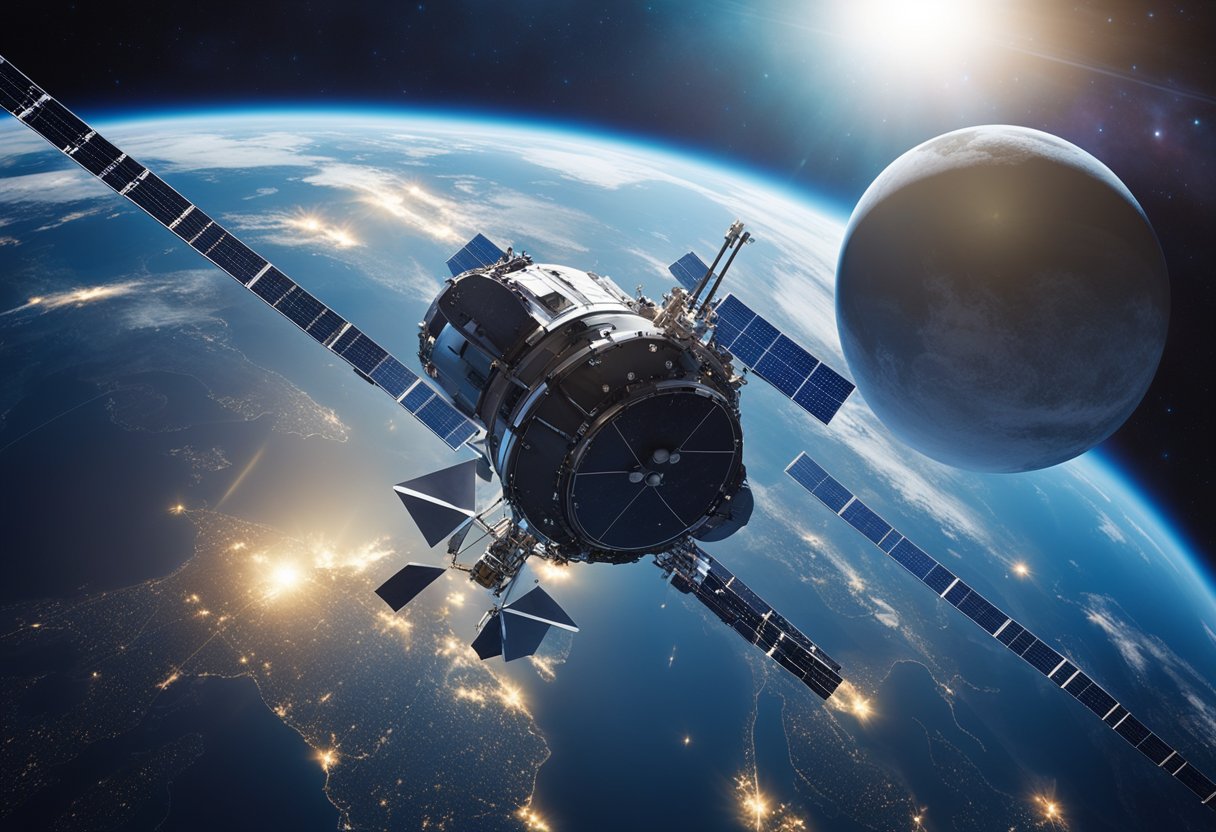
In addressing security and deterrence in space, we recognise the critical role of international agreements and treaties. Efforts have historically focused on two main areas: the limitation of arms and the prevention of an arms race in outerspace environments. These efforts are imperative for maintaining long-term peace and stability.
International consensus has primarily targeted the limitation of arms in outer space. As a result, various nations, including the US, Russia, and China, have grappled with how to balance national security interests with global stability. The Outer Space Treaty of 1967 remains a bedrock agreement, where signatories, including these key players, have agreed to not place nuclear weapons or other weapons of mass destruction in orbit or on celestial bodies.
Concurrently, there’s an ongoing dialogue centred on the prevention of an arms race in space (PAROS). This discussion acknowledges the potential for conventional weapons and missiles to be deployed in space, which could escalate into a full-fledged arms race. Discussions at the United Nations and other diplomatic venues attempt to extend the legal framework beyond the existing treaties to prohibit offensive weapons in space altogether, thereby strengthening global space security and arms control measures.
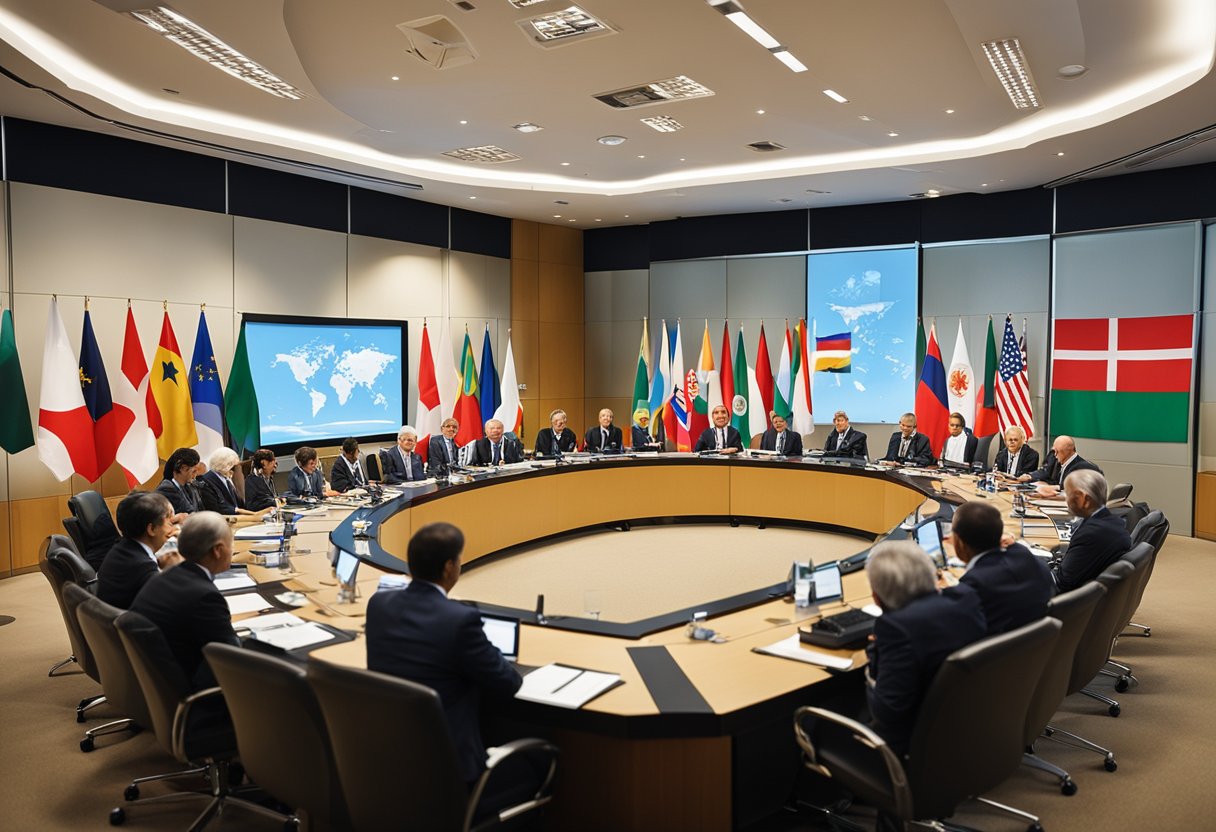
In the realm of space law and governance, international committees play a pivotal role, particularly within the framework of the United Nations. These entities are instrumental in guiding the efforts to maintain outer space for peaceful purposes and to regulate activities as humanity’s presence in space expands.
The United Nations General Assembly (UNGA) is central to international space law, driving the development of key treaties through its committees. We note that the Committee on the Peaceful Uses of Outer Space (COPUOS) is an integral part of the UNGA’s efforts, comprising 111 nations dedicated to overseeing the exploration of outer space. This committee is tasked with fostering international cooperation and ensuring space remains accessible for all humanity.
The First Committee of the United Nations General Assembly has a specific mandate focusing on disarmament, global challenges, and threats to peace that affect the international community. We recognise that disarmament is a crucial aspect of space governance. The committee has formally acknowledged the importance of space and space assets in sustaining peace, security, and future development.
In the realm of space exploration and utilisation, monitoring and surveillance are paramount. We focus on enhancing Space Situational Awareness and establishing comprehensive Best Practices and Guidelines.
Situational awareness in space is crucial for tracking a plethora of objects, from active satellites to fragments of debris. This monitoring is indispensable for preventing collisions that can create a dangerous debris cloud, compromising vital infrastructure in orbit. We’re committed to the deployment of sophisticated sensors and telescopes to maintain an up-to-date catalogue of space objects. As space activities increase, so does the potential for space debris, which necessitates robust surveillance to protect assets.
Key Components of Space Situational Awareness:
The development of best practices and guidelines ensures the longevity and sustainability of space operations. We actively contribute to international dialogues aimed at establishing norms that govern space activity, incorporating concerns like debris mitigation and collision avoidance into our operational framework.
Guidelines to Uphold:
By adhering to these practices, we bolster our commitment to maintaining the safety and sustainability of the space environment. Since space activities are intertwined with global security and economic interests, our participation in crafting these guidelines stands at the forefront of responsible space stewardship.

The involvement of non-state actors, particularly from the private sector, plays a crucial role in shaping the future of space activities. These entities have become key stakeholders in promoting international cooperation and innovation within the space industry.
The United States has witnessed a significant surge in private sector interests in space exploration. Entities ranging from for-profit organisations to small and medium-sized enterprises (SMEs) have transformed the landscape of space endeavours. One such example is the growth of space tourism, where companies like SpaceVoyageVentures.com are at the forefront of offering suborbital flights, charting a course for future off-planet travel experiences.
Companies in the private sector are not only increasing the number of satellites in orbit but are also instrumental in offering services such as telecommunications and remote sensing. Their presence in the space industry advocates a culture of cooperation that was previously dominated by state actors alone. These non-state actors extend their impact by providing innovative solutions that continue to redefine space utilisation and its legal framework.
Our global objective necessitates a stable environment for collaboration among various nations and across sectors. This includes facilitating dialogue to address the complexities of commercial space actors’ neutrality in international conflicts. Stakeholders must recognise the challenges and ensure that both state and non-state actors adhere to a framework that sustains the peaceful use of outer space.
By embracing international cooperation, these non-state entities contribute significantly to the development of a comprehensive legal doctrine that reflects the reality of contemporary space activities. The involvement of various international players helps to create an open and inclusive domain for outer space, fostering an environment where collaboration can thrive amidst shared interests in space exploration.
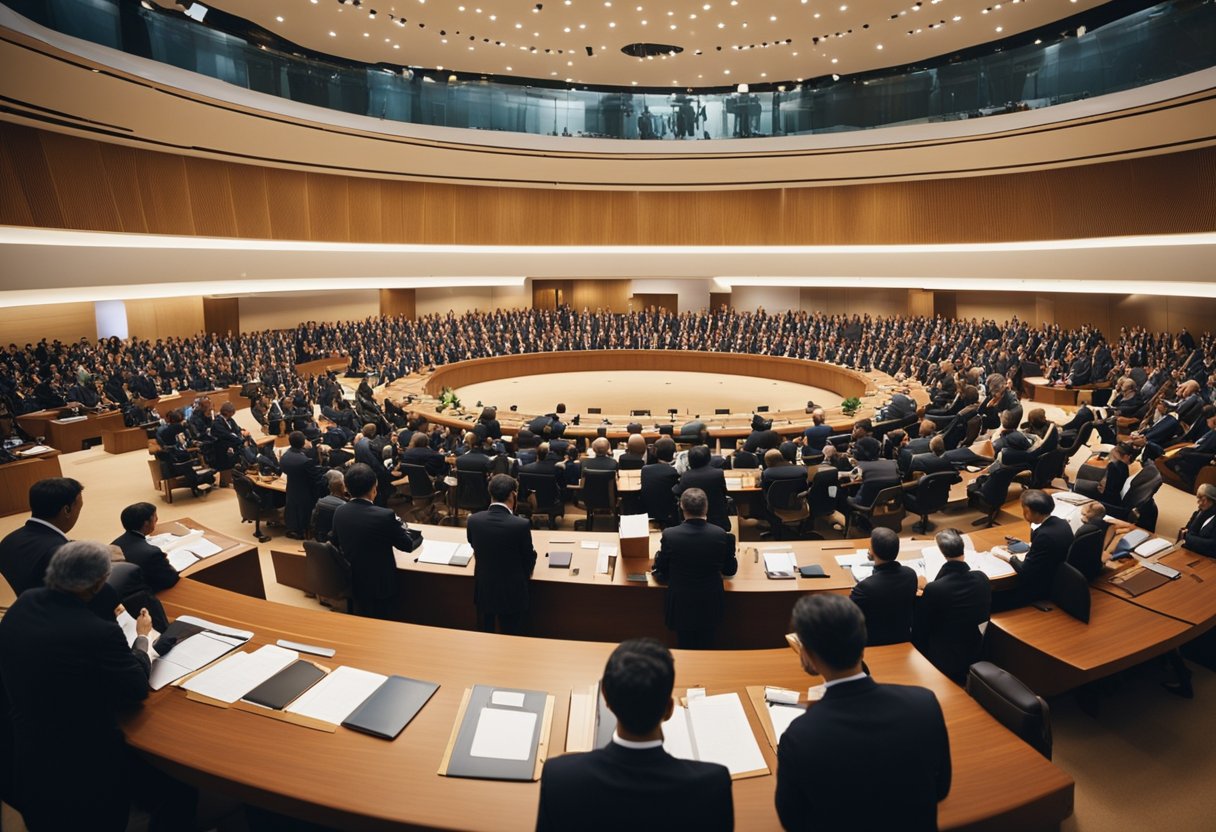
Updating space law, a task undertaken by the United Nations, will have a significant impact on our collective experience of space. As new treaties shape the regulations governing the cosmos, they not only reinforce peaceful collaboration but also ensure that space activities reflect the best interests of humanity.
Here’s what we can anticipate:
| Entity | Relevance |
|---|---|
| Human Experience | Directly enriched by participation in space-related developments. |
| Space Poses Challenges | The changes in space law will define how we responsibly navigate these challenges. |
| Vital Role for Humanity | Space exploration unites us in a shared endeavour, fostering a global sense of community. |
| United Nations Office for Outer Space Affairs | Instrumental in guiding updates to the treaty, ensuring it mirrors contemporary needs. |
Through our efforts to revise space law, we’re crafting a framework that not only preserves the universal heritage of mankind but also ensures that future generations inherit a safe and secure space environment. Our commitment to this cause positions us at the forefront of advocating for a sustainable future in space exploration.
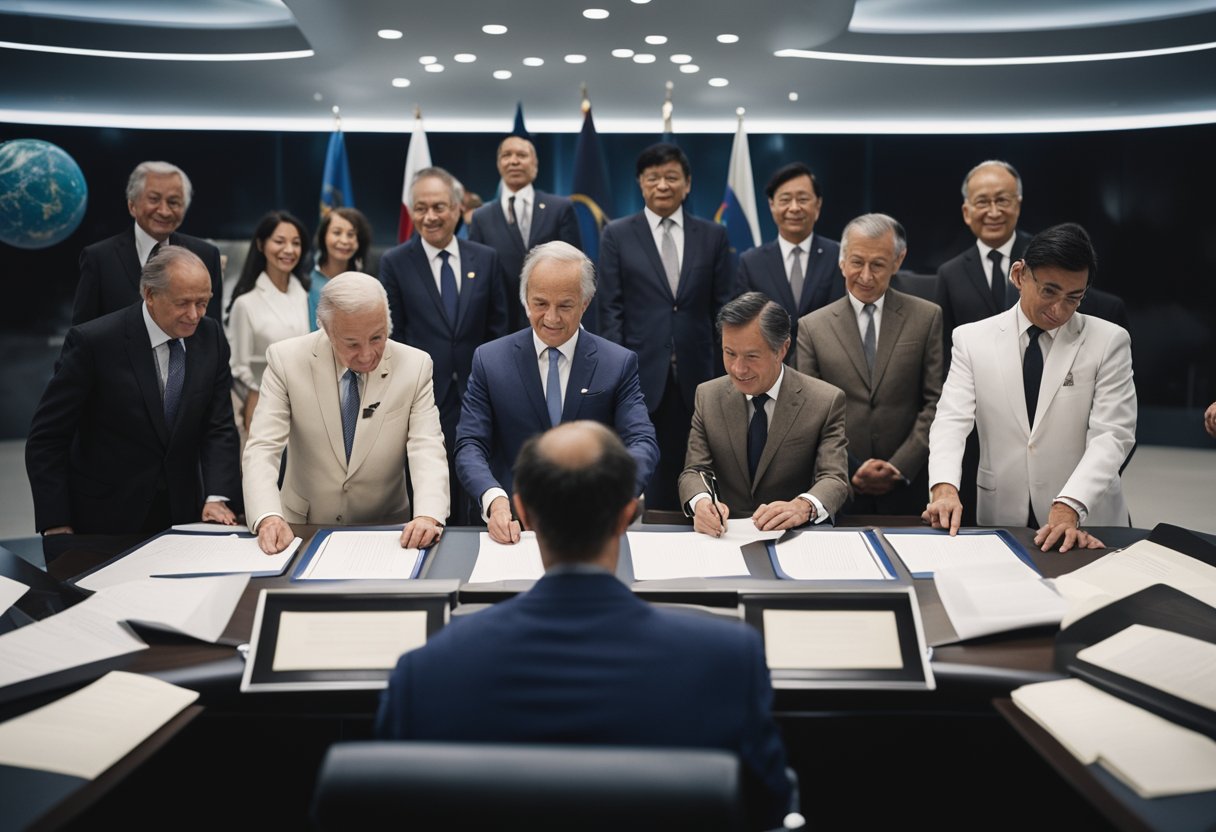
In the ever-evolving domain of space exploration and utilisation, the future beckons with substantial policy updates and technological advancements that promise to redefine our presence and activities in outer space.
Our space policy landscape is adjusting to accommodate burgeoning space assets and the increasing prevalence of space travel. Notably, we see initiatives aimed at mitigating risks, such as space debris, and improving weather forecasts, which are crucial for safe space operations. Planning and diplomacy are at the forefront, with nations like Germany striving to contribute significantly to international discussions. The United Nations has signalled an urgency in modernising space law as private space companies have launched a plethora of satellites. For example, within the discussions, a central topic is the need to determine when behaviour may be considered irresponsible in space, which impacts not only governmental bodies but also the emerging space tourism industry.
Technology is the cornerstone of future development in our extraterrestrial endeavours. Sophisticated propulsion systems, advanced material sciences, and an escalated emphasis on AI-driven space assets underline the progress to be made. NASA, spearheading many advancements, continues to be instrumental in driving research that leads to the introduction of novel technologies. The growing confidence in our technological capabilities bolsters not just U.S. leadership in space but also global collaborative efforts. In relation to space tourism, websites like SpaceVoyageVentures.com document the rapid advancements, offering a glimpse into the potential future tourism trips, mapping out what is currently available, and what will soon be within our reach.
In this section, we address some of the most pressing inquiries regarding updates and compliance with space law, shedding light on recent developments, compliance by agencies such as NASA, and the wider implications for space exploration.
Recent discussions by the United Nations aim to address the challenges posed by military uses of space and the creation of space debris. In response to these concerns, the United Nations plans to update space law to mitigate threats and establish more comprehensive guidelines for responsible behaviour in space.
The Moon Agreement, which elaborates on the Outer Space Treaty, regarding the moon and other celestial bodies, remains less ratified compared to other space law treaties. Its status can be confirmed through the most recent compilation of treaty status updates provided by UNOOSA, highlighting limited global endorsement.
NASA complies with the Outer Space Treaty through careful mission planning, ensuring that space activities are conducted for peaceful purposes and avoiding harmful contamination of celestial bodies. It endeavours to adhere to international agreements and coordinates with other nations, fostering transparency and cooperation in outer space activities.
Yes, there have been new signatories to the Outer Space Treaty, strengthening the framework for international space law. For instance, in August 2023, Panama ratified the treaty, joining the list of nations committed to the peaceful exploration and use of outer space.
The implications of the Outer Space Treaty on contemporary missions include the need for states to ensure that all space activities are conducted in accordance with international law. It influences how spacecraft are designed, debris is managed, and how missions avoid interfering with activities of other nations, maintaining a peaceful and sustainable space environment.
When disputes arise, the existing space treaties advocate for peaceful resolution through diplomatic negotiations. The United Nations and its Office for Outer Space Affairs (UNOOSA) facilitate discussions and offer support in interpreting the treaty provisions to aid member states in reaching a mutually acceptable resolution.